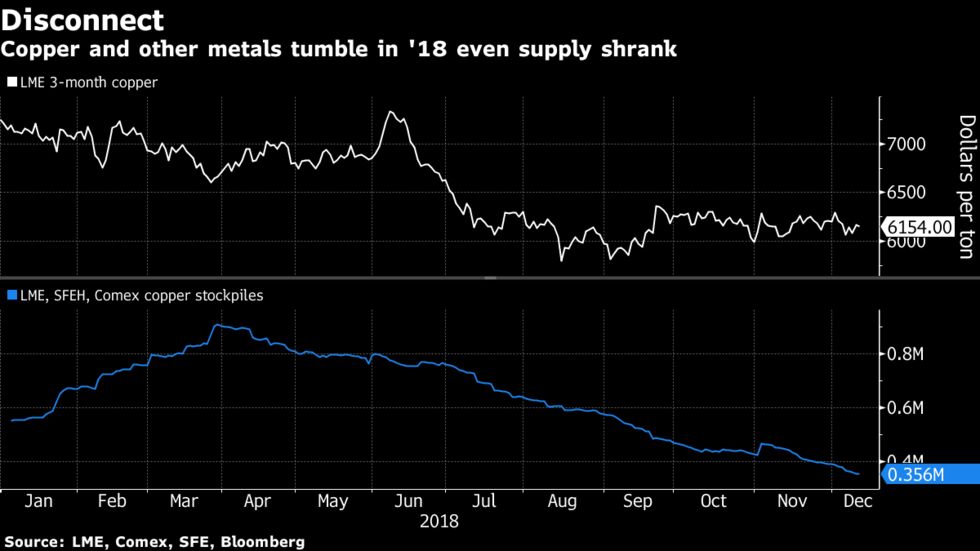Categories:
Base Metals
/
General Market Commentary
Topics:
General Base Metals
/
General Market Commentary
China Holds the Key to Growth After Year’s Losses in Metals Markets, Experts Say
As China goes, so goes industrial metals.
That’s the message from anxious investors rolling out of a rough 2018, when Trump trade tensions, Federal Reserve rate hikes, a strong dollar and an economic slowdown in China all combined to push the London Metal Exchange Index to its first annual loss since 2015. Five metals have fallen by 13 percent or more, led by zinc, which has lost more than 20 percent.
Bulls are betting that shrinking supplies will help boost prices after a year described by brokerage Marex Spectronas “horrid,” and they’re hopeful China will support stimulus measures early next year. Others aren’t as convinced following weak import data from the Asian giant in November.
“The base metals will track China, and I wish I had a better story,” said Rob Haworth, who helps oversee about $164 billion at U.S. Bank Wealth Management in Seattle. “Growth there is slowing and is likely to continue. The caveat would be if China does decouple from Fed tightening, and engages in meaningful stimulus.”
The best bet for 2019 is copper, says Hui Shan, a strategist at Goldman Sachs & Co. LLC.
The pace of decline of visible copper reserves in China this year suggests the Asian country’s demand for the red metal has risen 5 to 6 percent in 2018, according to estimates by JPMorgan Chase Bank NA. That’s above a consensus earlier in the year for 2 to 3 percent gains.
“Chinese copper demand is not as bad as people think,” said Natasha Kaneva, the head of metals strategy in the global commodities group at JPMorgan. Overall, the bank kept a bullish bias on the base metals complex into year-end 2018 and first half in 2019.
Still, Kaneva said, If the U.S. Federal Reserve boosts rates every quarter in 2019 that could lead the bond yield curve to invert and “risky assets will have a difficult time appreciating in that environment.”

Money managers are cautious. Since early March when the trade war got underway, they’ve cut net-bullish bets across a spectrum of 18 commodities by about 63 percent from the year’s high, according to U.S. government data. In copper they have been net bearish for most of the past five months.